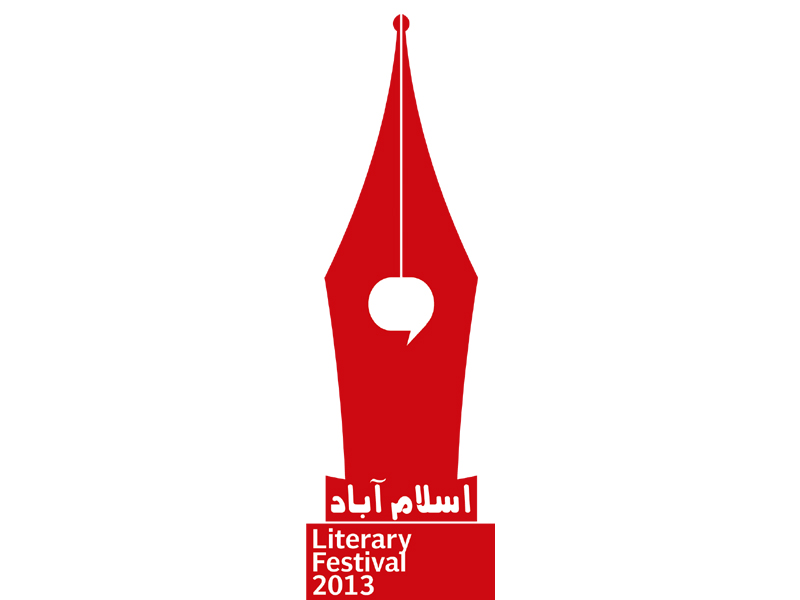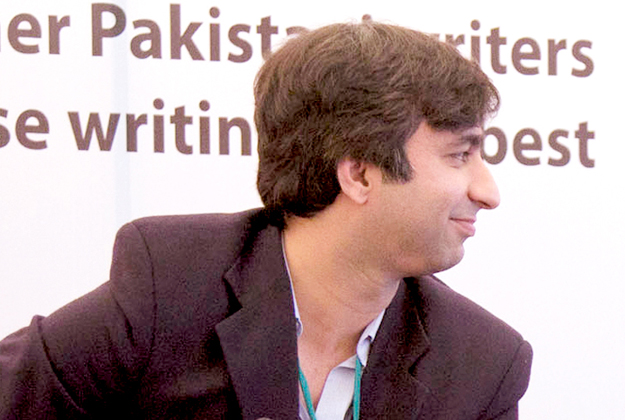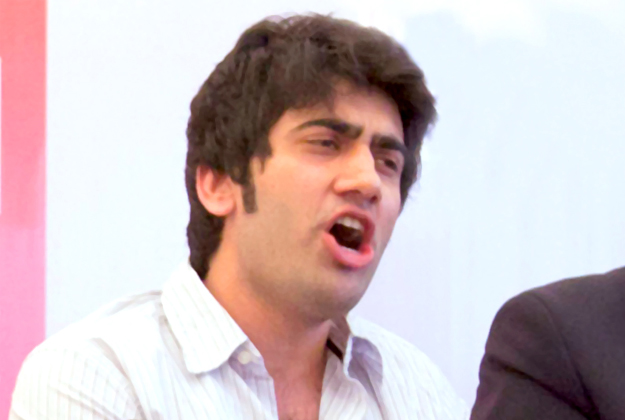
It is perhaps of little surprise that the YouTube ban earned its own session at the Islamabad Literature Festival, a session that challenged the establishment in all its crumbling, insecure and hegemonic glory.
The delightful assembly of satire-charged speakers included internet parody-king Osman Khalid Butt of “PTA-banned words”, “Crazed Maya Khan” and “Halal Paris Hilton” fame, Friday Times editor and famed ‘tweeter’ Raza Rumi, ‘Bayghairat Brigade’ vocalist Ali Aftab Saeed, and musician-academic Taimur Rehman.
“If they can ban YouTube, they can ban anything,” shared Saeed, who has seen his band’s recently-launched video, “Dhinak Dhinak”, banned in Pakistan for its satirical take on an uncompromising military throne. The ban on the music video — later self-released online — was taken as an honour by the band, as it puts them in the company of other offensive, ban-worthy types such as Habib Jalib, Faiz Ahmed Faiz.
In the spirit of the ever-sceptical journalist, Rumi shared that the YouTube ban was the reflection of an ideological struggle — a duel between the kind of Pakistan the state wants, and the kind of Pakistan that the people want.
“YouTube has the largest footprint on the web,” said Rumi, who feels that the censorship of the video-sharing site, social media platforms such as Facebook, and even news outlets such as the BBC’s television news channel and Rolling Stone magazine, are shameful reminders of the failure of a nuclear-armed state whose inability to accept freedom of expression and the possibility of an alternative narrative has led to the use of short-sighted solutions.

Musician Taimur Rehman
“Social media is a tool of resistance,” said Rumi, adding that any kind of “national discourse beyond the controlled content of a second-grade textbook is considered sacrosanct”.
Rehman, however, believes that the 35 million Internet users in Pakistan are shaping this discourse. With over seven million Facebook users alone, the franchise has extended to the working class, creating a platform that is liberated from an otherwise socioeconomically-fenced society.
“The YouTube ban is reminiscent of the Guttenberg press ban,” expressed Rehman, drawing lessons from the imprudence of the Ottomans during the 15th century. The use of the press was considered “Satanic” and “impure” and the 300-year ban on the printing press transformed the thriving Ottoman Empire into a plaything for European states, where it had triggered the Renaissance.
“I feel more educated about my country than I was five years ago,” shared Butt, who had parodied the reaction to a satirical story on not-so family friendly American socialite Paris Hilton converting to Islam. The comments of many Muslims, including at least one from Gujranwala, included marriage proposals from prospective suitors, complete with phone numbers. For his parody piece, Butt received more than his share of hate for mocking the new-and-improved “pure” Paris.

‘Bayghairat Brigade’ vocalist Ali Aftab Saeed
Butt feels that the incredible exposure linked to the viral nature of the medium is important for self-promoting artists. Butt, himself, has landed various opportunities through his online videos such as television commercials and dramas.
Consensus circulated that the anonymity and intangibility in the dissemination of information in the cyber cloud allowed people to vocalise their thoughts without “the fear of getting shot”, though this also encouraged cyber-bullying and hate speech, such as the riots in reaction to the blasphemous film on YouTube last September.
“There are more internet users in Pakistan than there were voters in the 2008 Elections,” joked moderator Omayr Aziz Saiyid.
Later, Ali Aftab Saeed and Taimur Rehman satiated a small fan club with tunes from their albums, including an exciting mash-up of “Dhinak Dhinak” and “Chapna”.
Published in The Express Tribune, May 1st, 2013.
COMMENTS (1)
Comments are moderated and generally will be posted if they are on-topic and not abusive.
For more information, please see our Comments FAQ

1722586547-0/Untitled-design-(73)1722586547-0-165x106.webp)


1732326457-0/prime-(1)1732326457-0-165x106.webp)












We do not try to listen and understand nobodies from Waziristan. Because such stories and ideas of Waziristan genocide, plight,carnage are from the last century, which does not have any meaning in overall global imperial project and war profiteers agenda. Without realizing the horror of the old, women, sick and kids and all those innocent living under drones 24/7, have no forum, no festivals, no film, no drama, no platform to speak about their genocide. There is no human rights outcry, NGOs, civil society, media, state to acknowledge their sufferings. Just horrible silence for more than a decade.
Our human rights, NGOs, civil society, media, state listen, discuss and promote only those thinkers, writers, ideas, stories like Malala, Hazara, Swat Flogging Vedio, Mukhtaran Mai who serve them, war profiteers and global imperial agenda well.
Our elite, celebrity, intellectuals endorse minds that hail from their own class. And, if nothing else, one at least needs to have thousands of followers online in order to be seen as an author worth reading. Poor man, woman, children, weak, old are dieing for more than 10 years, without even knowing the ‘revolutionary wonders’ of the social media.